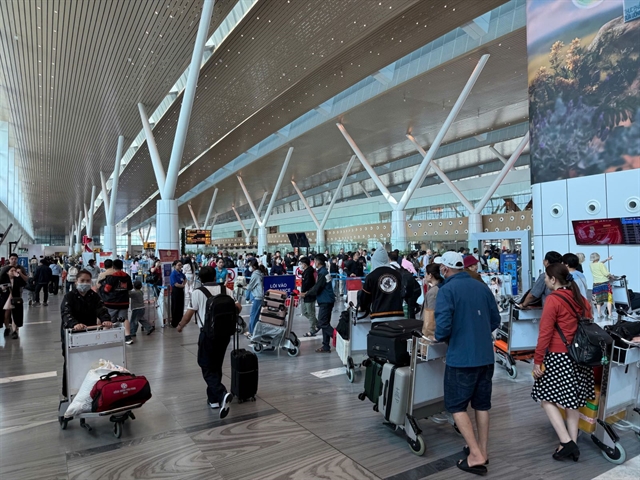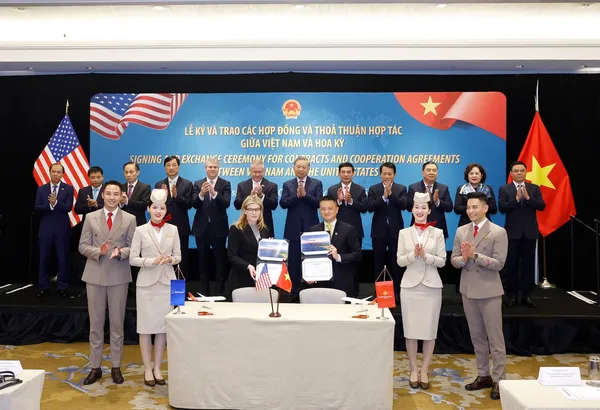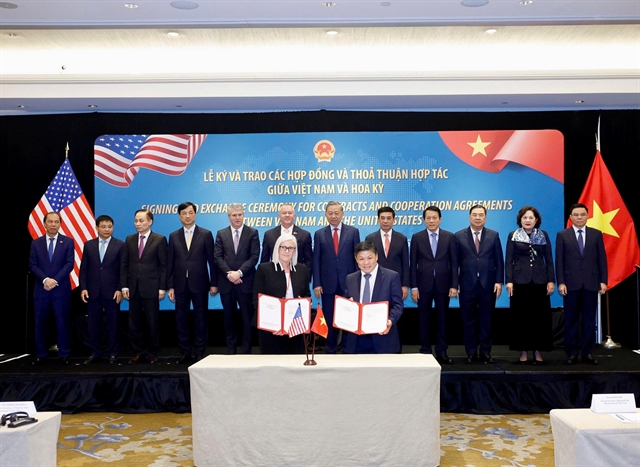 Economy
Economy
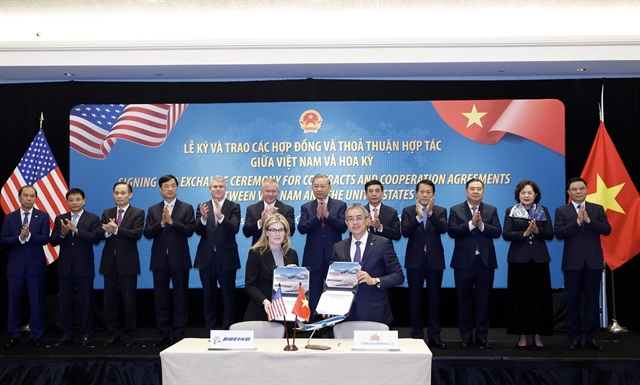
About 135 Danish firms have opened branch offices in Việt Nam so far.
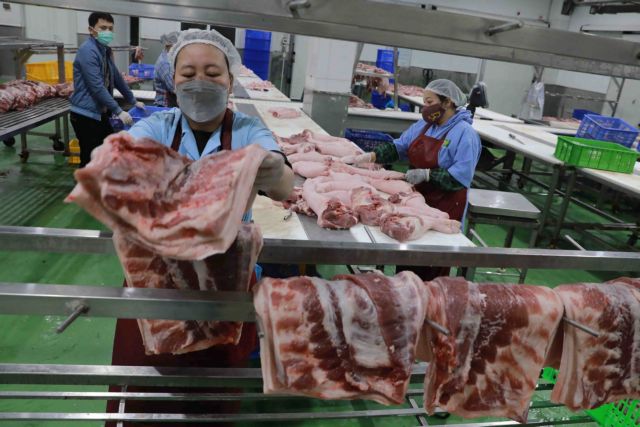
|
| Pork is processed at a Vinh Anh Food factory. Food safety SSC is a Danish-Vietnamese partnership tasked with improving food safety in the Vietnamese pork value chain. VNA/VNS Photo |
HÀ NỘI — About 135 Danish firms have opened branch offices in Việt Nam so far and the firms are actively contributing to the growth of various sectors including agriculture, according to Deputy Minister of Agriculture and Rural Development Phùng Đức Tiến.
The deputy minister was speaking at the seminar "Danish experiences and solutions in sustainable agri-food production" on August 17.
Tiến underscored Denmark as one of the leading countries in agriculture and sustainable development. Denmark's experiences, he believed, would help Vietnamese firms speed up on the road to high-tech and climate-smart agriculture.
Sanne Hoj Andren, Sector Counsellor for Agri-Food at the Embassy of Denmark, revealed that strategic sector cooperation (SSC) is a partnership between Danish public authorities and Vietnamese ministries.
The two countries have SSC in four areas comprising education, health, food safety and statistics. The overall objective of the food safety SSC is to improve feed quality and food safety in Việt Nam's pork value chain.
To that end, Danish authorities have been assisting Vietnamese partners in pork origin-tracing, controlling veterinary medicines, controlling food safety in meat processing and capacity building in risk-based management.
Đinh Phạm Hiền, PSAV Secretariat at the Ministry of Agriculture and Rural Development's International Cooperation Department, said that the Partnership for Sustainable Agriculture (PAS) was a World Economic Forum initiative aimed at promoting sustainable agriculture worldwide.
Việt Nam institutionalised working groups into PAS in 2015 and the Partnership for Sustainable Agriculture in Việt Nam (PASV) was tasked with bringing together players in the agricultural sector to establish value chains of Vietnamese produce.
The PASV has increased farming productivity by 17 per cent and farmer incomes alike, and at the same time, cut CO2 emissions by 43 per cent. The initiative has also helped value chains meet international standards.
Jeppe Sondergaard Pedersen, International Chief Adviser of the Danish Agriculture and Food Council, said Denmark had 4,121 organic farms that cultivated 310,000 ha of land in 2020.
Given so much land claimed by cultivation, the country has to become more sustainable by embracing circular production and resource-efficient approaches. Its produce remains competitive through higher yields and increased efficiency, more value added, and the entrance to new markets.
Troels Vensild, Head of the Danish Veterinary and Food Administration's International Cooperation Division, underscored Denmark as among the world's most sustainable food producers.
Green transition is key for Danish firms to export sustainable products, resource-efficient solutions and technologies globally. — VNS


